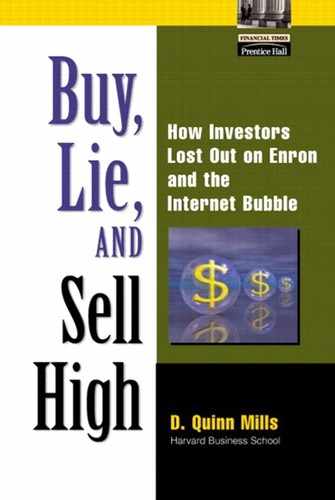Improving Disclosure and Governance at Mutual Funds
Mutual funds have grown enormously in recent years, and have become a major investment vehicle for small investors. In fact, the retail investor buying individual stocks is a less and less important factor in the market. Instead, small investors put their money in mutual funds, and because of professional management and greater diversification, that's where it ought to go.
But there are both disclosure and governance issues. The boilerplate of mutual funds is virtually useless to investors, and many funds tend to drift away from whatever principles are stated in their prospectuses.
If the profile of a fund's investments is being changed, then that information ought to be disclosed both in an amendment to a prospectus and in a notice to fund investors.
Governance in mutual funds seems a bit confused today because the managers of the fund seem to be legally the same people as the investors in the fund. It's the responsibility of the board of directors of the fund to act in the interests of investors; it's their responsibility to remove fund managers if the fund is performing poorly.
Mutual fund directors are fiduciaries, like corporate directors. Their responsibility is to look after the best interests of those investing in the mutual fund. This is proper. But mutual fund directors seem to lack the realization to which corporate directors have come regarding what corporate governance means. Mutual fund directors haven't come as far as corporate directors in looking after shareholders.
There have been several cases in which fund directors have tried to dismiss investment advisors on the grounds that the investment advisor is doing a poor job, and fund directors have sought to get another investment advisor. But the investment advisors then ran proxy contests, and the boards lost. In consequence, the structure of mutual fund boards is not yet at a point that they can take decisions on behalf of investors with any confidence that they will eventually win. Today the dominant machinery is in the hands of the investment advisor. The situation is not like that in a corporation, where the board of directors can fire the chief executive officer of the firm, and if necessary, people all the way down the line. In a mutual fund, all the board can do is terminate the contract with the investment advisor, but the investment advisor as an institution stays in place. It's fully mobilized, with lawyers and accountants and all the rest. In contrast, the board of the fund has very little.
To rectify the situation, we might require that all directors of funds be hired by outsiders independent of the investment advisor, and that the board hire independent counsel and accountants.
